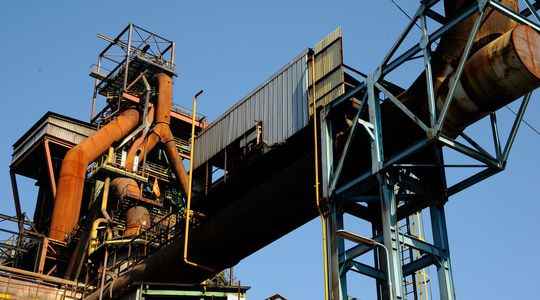In the climate class, Europe is a good student, as it is the only major economic power to have been able to significantly reduce its CO2 emissions. Indeed, between 1990 and 2019, it reduced its emissions by 25%, while the United States and China increased them by 3% and 323% respectively. However, this success hides a double failure.
On the one hand, climate policies have contributed to the deindustrialization of the Old Continent. By penalizing the most carbon-intensive industries – for example by requiring them to buy the right to pollute – it has caused their costs to increase compared to competitors operating in “climatically” less ambitious countries. On the other hand, reducing CO2 emissions here has only had the effect of moving them to these other countries, which often use more polluting production methods.
These “carbon leaks” are impoverishing Europe and killing jobs while worsening global climate dynamics. We lose on all counts, while our commercial competitors are rubbing their hands. Take the example of steel, which accounts for around 8% of CO2 emissions in the European Union. The ton was trading around 450 euros on the continent before the pandemic. Standard production is done in blast furnaces using coal, climate enemy number 1, both as a source of energy and to reduce iron ore.
Each ton of steel emits 1.85 tons of CO2 into the atmosphere. In Europe, producers must pay the corresponding emission permits, the price of which has risen from practically nothing to 90 euros per tonne of CO2 on the EU-ETS* market in a few years. This carbon price therefore increases European production costs by 166 euros per tonne, i.e. a price increase of 27%!
A competitive handicap
This is a terrible competitive handicap which is destined to increase with the anticipated rise in the price of carbon, which should reach values of around 250 euros per ton of CO2 in 2030 if we want to respect our climate commitments. At this price, the sector will be encouraged to replace its blast furnaces with electric furnaces and carbon-free hydrogen, but this will increase production costs by around a third. Which could mean the outright death of this industry, replaced by steel imported from countries that don’t care about global warming.
Remember that European steel represents more than 2.5 million direct and indirect jobs. And what is true for this sector is just as true for many others. Until now, the Union has offered free permits to manufacturers most exposed to international competition. But these “authorizations” have no impact on the incentive to decarbonize production methods. So that’s not the right solution.
President Macron wants to take advantage of France’s presidency of the Council of the European Union this semester to push ahead with the plan to impose on steel importers to the Union the same carbon pricing that European producers face. This elegant solution is compatible with the rules of the World Trade Organization, since it restores fair competition between producers.
It also makes it possible to abolish the system of free permits, which should release additional financing margins, in particular to protect the most modest households from the increase in the cost of living induced by the ecological transition. It is absolutely necessary to support this initiative, as much for climate change as for our jobs and our prosperity.
But what to do with our local producers who export their steel and other carbon products? The restoration of fair competition on international markets could militate in favor of the EU reimbursing these producers for the burden of carbon pricing when their products leave the continent. Because Europe is not in a position to export its climate ambition to consumers in the rest of the world. For example, it cannot impose the purchase of more expensive but carbon-free steels. On the climate as for peace in the world, it must be recognized that Europe cannot do everything.
* Emissions trading system within the European Union.
